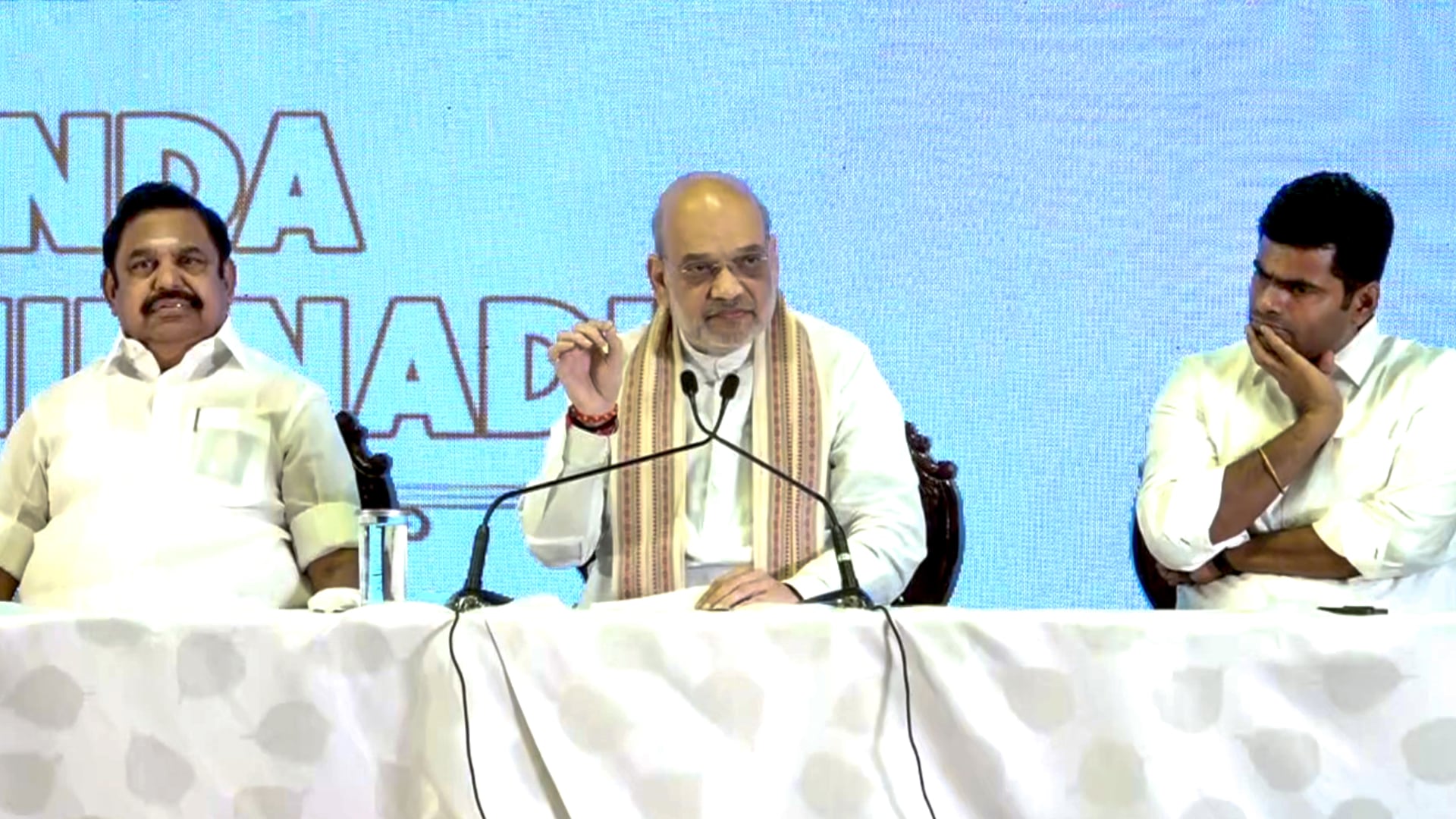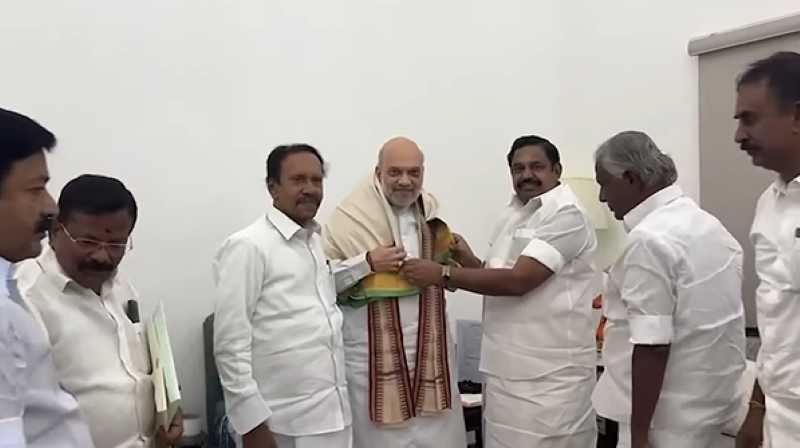AIADMK-BJP Alliance Tension Builds Ahead of 2026 Elections
The AIADMK-BJP Alliance is once again in the spotlight as Tamil Nadu prepares for the 2026 Assembly elections. The political mood turned intense after AIADMK leader Edappadi K. Palaniswami (EPS) firmly stated that if their alliance wins, the government would be formed solely by the AIADMK with him as Chief Minister. This clear and direct message has created visible friction within the alliance, especially with the BJP, which had hoped to play a significant role in governance if the coalition emerged victorious.
In a recent public speech, EPS asserted that the AIADMK will lead and govern Tamil Nadu alone if the alliance secures a win. “It is the AIADMK that heads this alliance, and it will be my decision. I will be the Chief Minister,” he declared, leaving no room for ambiguity. His statement appeared to counter earlier remarks by Union Home Minister Amit Shah, who hinted at the possibility of a coalition government and shared leadership.
AIADMK-BJP Alliance Faces Internal Turbulence Over Leadership Claims
Though the AIADMK-BJP Alliance was re-formed in April 2025 after a bitter breakup in 2023, tensions have continued to simmer beneath the surface. The original split was triggered by then BJP Tamil Nadu chief K. Annamalai’s repeated verbal attacks on AIADMK icons. While both parties seemed to have moved past those differences, EPS’s current assertiveness about leadership has brought old issues back to the surface.

Responding to EPS’s declaration, Annamalai stated that the BJP fully intends to be part of the government. He emphasized that Home Minister Amit Shah had already said there would be a “common minimum program” acceptable to both parties and that the BJP would be involved in decision-making. However, EPS’s latest comments leave little room for negotiation or power-sharing.
“Our Alliance Will Win But…”: AIADMK Warns BJP Before Tamil Nadu Election https://t.co/yYBYj3FZtK pic.twitter.com/B9iK7hb9jm
— NDTV (@ndtv) July 16, 2025
EPS’s confidence may be rooted in AIADMK’s stronger voter base in Tamil Nadu, as the BJP has traditionally struggled to gain significant traction in the state. Despite their national strength, the BJP’s local influence remains limited, which might be why EPS feels emboldened to push for a solo rule within a formal alliance.
Solo Ambitions and Political Strategy Within the AIADMK-BJP Alliance


The BJP, on the other hand, has kept a diplomatic tone. Party leaders stress that defeating the DMK is the priority and that the alliance should focus on that objective. Despite this, Shah’s repeated mentions of a coalition have not gone unnoticed and clearly did not sit well with EPS and the AIADMK cadre.
Meanwhile, the emergence of actor Vijay’s party, Tamizhaga Vetri Kazhagam, adds another layer of complexity. Vijay has refused to ally with any major party, branding the BJP as divisive and the DMK as corrupt. His solo campaign could attract undecided or disillusioned voters, impacting the overall outcome of the election. Also Read: Mumbai BMC Sanitation Workers Strike: Massive Protest Against Privatisation
Conclusion:
The AIADMK-BJP Alliance stands at a critical crossroads. While the parties remain formally united, deep cracks are beginning to show over the issue of leadership and power-sharing. As the election nears, the question is no longer just about defeating the DMK but whether the alliance can hold itself together. EPS’s bold claim may resonate with traditional AIADMK voters, but it also risks pushing the BJP to reconsider its position. Either way, Tamil Nadu’s political future promises high drama and unexpected turns.

